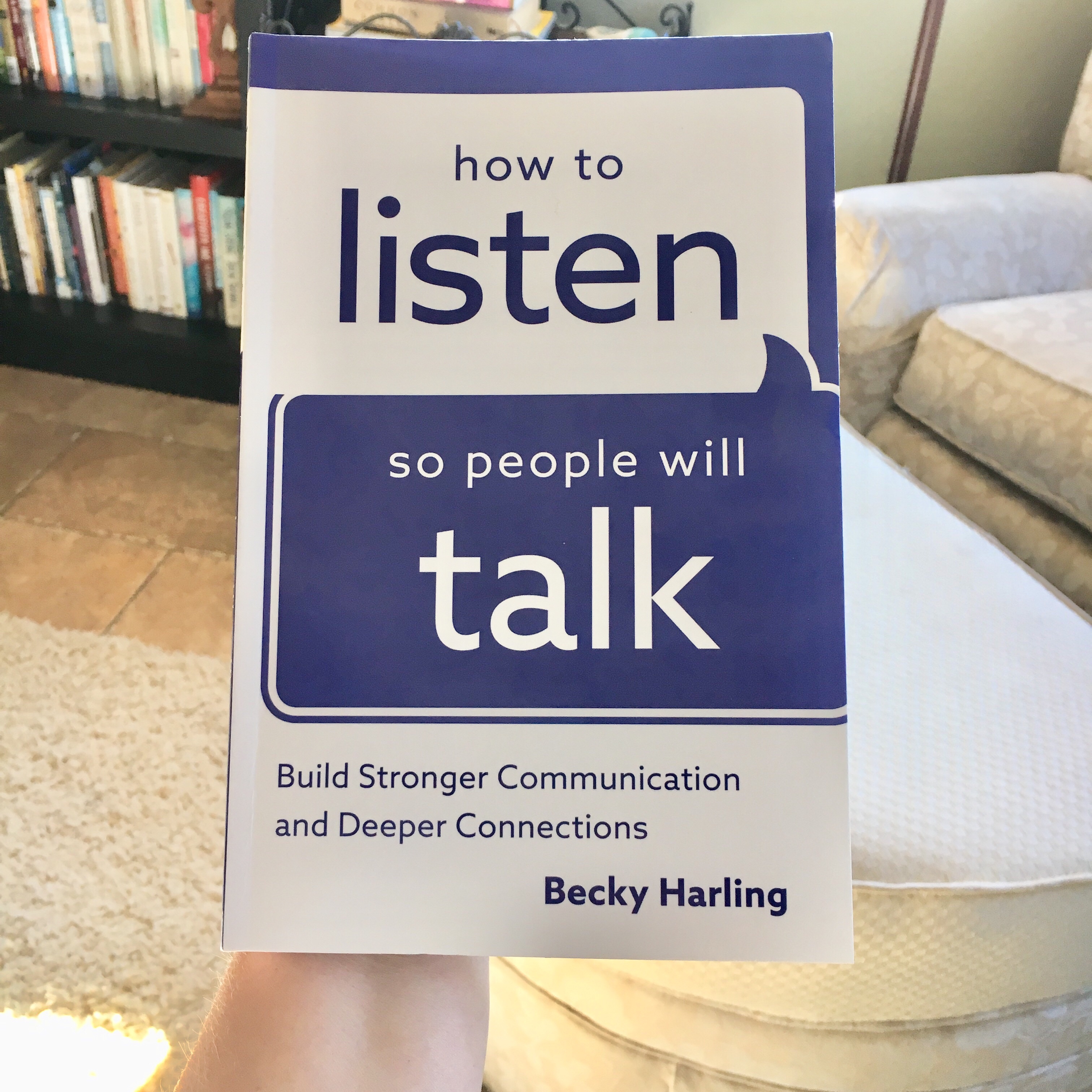“Carefully consider how you listen.”–Luke 8:18
Acoustics was my first graduate course. Four afternoons a week for a month during the hot west Texas summer of 1989. I’d climb to the third floor of the science building and listen to a physics professor, decked out in biking workout apparel, drone on about wavelengths and amplitude, compression and frequency.
Dr. Whatshisname taught us a lot about the mechanics of sound. While only trace amounts of those lectures still linger in my longterm memory, one truth remains etched in concrete.
Hearing sound is not at all the same as listening to people.

There was no graduate course available to train us in “The Art of Listening”. This might have been a more beneficial way to begin a career based on improving human communication.
It’s easy to forget that listening is an intentional act of cognition. To listen is to think about, to give attention to the sounds we are hearing. It is an active process.
Have you ever had an interaction with someone and in retrospect realized you missed key pieces of the message? Your body was present and you instinctually provided the proper nonverbals, but your thoughts were not at all focused on the words shared.
Yeah, I may or may not have had one or three of my children (when MOM, MOM, MOM, didn’t work) palm my cheeks to force me to listen. Please tell me I’m not alone.
In our digitally distracted age, it’s never been more challenging to be quick to listen and slow to speak. We talk faster and listen less. Multitasking is a non-negotiable way of life and although we receive more words than ever, we can easily miss the message.
Which in turn causes all sorts of breakdowns in connection.
Has listening become a lost art?
Let’s go back to the first day of kindergarten for a quick review. Good listening means watching eyes, quiet hands, zipped lips.
Yet eyes watching phone, busy hands, interrupting lips can become our lazy listening default style.
Consider these questions as a gentle checkup.
At home, are you fully present and not preoccupied when listening to a loved one share the details of their day?
At work, are you listening intentionally to the spoken and unspoken from a parent or colleague? Or is the internal critical monologue so loud you can’t hear them?
In the quiet, do you practice active listening with your own thoughts, your instinct, your body’s signals? Is God’s whisper audible in your spirit or is it lost in a sea of squawking, more entertaining voices?
This world is a terribly loud place and all sorts of voices vie for our attention.
I recently ran across this slim but powerful book. It’s an encouraging read that highlights the value and artistry of listening. As SLPs we are comfortable and proficient with all the speaking parts. But we must not forget the process of communication requires a sender AND a receiver. And both require skill and intention.

This week, may we remember the value that active listening brings to all our relationships.
What is one “noise” you could eliminate in order to improve your listening skills?

I have had a headache for two months straight…every day. It has become a noise in my head, in that when it gets so bad I feel it in my neck and teeth, I can’t focus to hear anything else. It sucks all the concentration and attention right from me. I hate this noise it has created in my world. I have seen a doctor, they schluff it off as cold weather causing sinus pressure, or the changes in the weather. I have not bought into this, though. I am getting better at working through them, knowing life must go on, through the pains of daily headaches. I am trying to bring my thoughts to a place where I can focus through the pain…..
Oh Susie! That sounds awful! I’ll be praying for answers and healing. Can’t imagine how this must be disrupting your days. May God pour out mercy and relief.